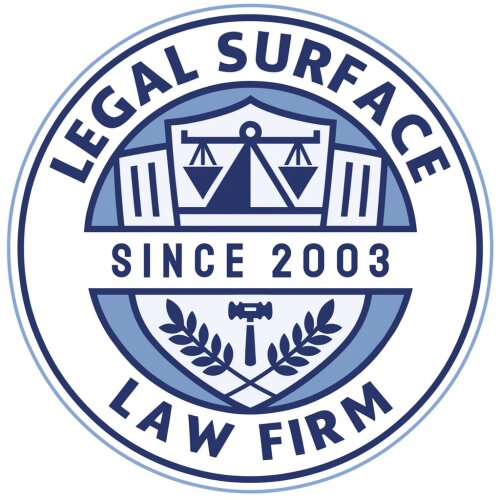Best Civil Rights Lawyers in Srinagar
Share your needs with us, get contacted by law firms.
Free. Takes 2 min.
List of the best lawyers in Srinagar, India
India Civil Rights Legal Articles
Browse our 1 legal article about Civil Rights in India written by expert lawyers.
- Waqf Judgment by the Supreme Court of India: Explained in Simple Words
- On 15 September 2025, the Supreme Court of India delivered an important ruling on the Waqf (Amendment) Act, 2025. This law introduced major changes to how Waqf properties (religious endowments made by Muslims for charity or religious purposes) are governed in India.Several petitions had been filed in the Court, challenging... Read more →
About Civil Rights Law in Srinagar, India
Civil rights law in Srinagar, the summer capital of Jammu & Kashmir, India, is rooted in the Constitution of India and aims to protect the basic rights and freedoms of its residents. These rights include equality before law, freedom from discrimination on grounds of religion, caste, sex, or place of birth, and protection of life and personal liberty. While Indian constitutional protections are applicable in Jammu & Kashmir, certain local laws and historical contexts have shaped how civil rights are exercised and enforced. The revocation of the special status for Jammu & Kashmir in August 2019 (Article 370 abrogation) brought significant changes, increasing the direct application of Indian constitutional laws in Srinagar. Despite these changes, civil rights issues remain central due to historical, political, and social complexities in the region.
Why You May Need a Lawyer
In Srinagar, individuals may require legal consultation in civil rights matters due to a range of circumstances. Common scenarios include:
- Experiencing discrimination based on religion, caste, ethnicity, gender, or disability in public or private institutions.
- Facing unlawful detention, restrictions on movement, or infringement of personal liberty by authorities or individuals.
- Encounters with police misuse of power or allegations of unlawful arrest or detention.
- Issues relating to freedom of speech, assembly, and protest.
- Denial of government benefits or entitlements due to discriminatory practices.
- Violation of property rights or unfair treatment in public or private employment.
Local Laws Overview
Jammu & Kashmir now follows the majority of Indian laws post-2019, including the Constitution's fundamental rights. In Srinagar, key legislation that impacts civil rights includes:
- The Indian Constitution: Fundamental Rights (Articles 14-32) guarantee equality, freedom, and protection from discrimination.
- Right to Information Act (Central): This empowers citizens to seek information from public authorities for promoting transparency.
- Protection of Civil Rights Act, 1955: Prevents untouchability and ensures equal access to public spaces and institutions.
- Scheduled Castes and Scheduled Tribes (Prevention of Atrocities) Act: Safeguards marginalized communities from discrimination and violence.
- Local Policing Laws: Govern detention, arrests, and assemblies. Preventive detention laws have been used in security contexts but are subject to constitutional challenge.
Frequently Asked Questions
What are my basic civil rights as a resident of Srinagar?
You have rights to equality, non-discrimination, personal liberty, freedom of speech and religion, and protection against arbitrary detention under the Constitution of India.
Can I file a complaint if I face discrimination in my workplace or educational institution?
Yes, discrimination on grounds of religion, caste, sex, or other protected categories is unlawful. You can file a complaint with your employer, institution, or appropriate government bodies, and seek judicial remedy if necessary.
What can I do if the police detain me without reason?
You have the right to be informed of the grounds for arrest and to consult a lawyer. If unlawfully detained, you can file a writ of habeas corpus in the High Court or Supreme Court challenging the detention.
Are peaceful protests allowed in Srinagar?
Yes, the right to assemble peacefully is protected, but authorities may impose restrictions for security or public order concerns. Protests must comply with local laws and obtain necessary permissions.
Can I access government information related to my rights?
Yes, under the Right to Information Act, you can request information from government departments, subject to certain exceptions.
How do I report incidents of untouchability or caste-based discrimination?
Report such incidents to the police or relevant authorities. The Protection of Civil Rights Act and SC/ST (Prevention of Atrocities) Act provide mechanisms for addressing and prosecuting such offences.
What if I am denied entry into public spaces on discriminatory grounds?
Denying entry to public spaces on discriminatory grounds is illegal. You may file a complaint with authorities and seek legal action against offenders.
Is legal aid available for civil rights cases in Srinagar?
Yes, the Jammu & Kashmir Legal Services Authority provides free legal aid to eligible persons, including those from marginalized communities or low-income groups.
How can I challenge a government order that violates my rights?
You can approach the High Court under Article 226 of the Constitution for writ remedies, or approach the Supreme Court under Article 32 for enforcement of fundamental rights.
What organizations offer support or guidance in civil rights matters?
Several local and national organizations, government commissions, and non-profits work in the area of civil rights (see Additional Resources below).
Additional Resources
- Jammu & Kashmir State Human Rights Commission (SHRC): Investigates human rights violations in the region.
- Jammu & Kashmir Legal Services Authority: Offers free and subsidized legal aid.
- National Human Rights Commission (NHRC) of India: Monitors human rights across the country and can be approached for serious grievances.
- Women’s Rights and Dalit Rights NGOs: Various local bodies provide advocacy, awareness, and support for affected individuals.
- District Legal Services Authorities: Operate at the district level for easy access to legal aid.
- Lawyers’ Associations: Local bar associations can assist in finding and appointing lawyers specializing in civil rights.
Next Steps
If you believe your civil rights have been violated in Srinagar, consider the following steps:
- Document all relevant events, including dates, places, names of persons involved, and any evidence (photos, documents, communication records).
- Consult with a qualified legal professional, preferably one with experience in civil rights law. You may approach the Jammu & Kashmir Legal Services Authority for free or subsidized legal advice if eligible.
- If immediate relief is needed, contact the police, the State Human Rights Commission, or relevant governmental authorities to register your complaint.
- If you are unable to get a satisfactory response, consider approaching the courts for judicial intervention, or seek help from human rights organizations.
- Stay informed about your rights through credible sources, and, where possible, involve community or advocacy groups for additional support.
Lawzana helps you find the best lawyers and law firms in Srinagar through a curated and pre-screened list of qualified legal professionals. Our platform offers rankings and detailed profiles of attorneys and law firms, allowing you to compare based on practice areas, including Civil Rights, experience, and client feedback.
Each profile includes a description of the firm's areas of practice, client reviews, team members and partners, year of establishment, spoken languages, office locations, contact information, social media presence, and any published articles or resources. Most firms on our platform speak English and are experienced in both local and international legal matters.
Get a quote from top-rated law firms in Srinagar, India — quickly, securely, and without unnecessary hassle.
Disclaimer:
The information provided on this page is for general informational purposes only and does not constitute legal advice. While we strive to ensure the accuracy and relevance of the content, legal information may change over time, and interpretations of the law can vary. You should always consult with a qualified legal professional for advice specific to your situation.
We disclaim all liability for actions taken or not taken based on the content of this page. If you believe any information is incorrect or outdated, please contact us, and we will review and update it where appropriate.









